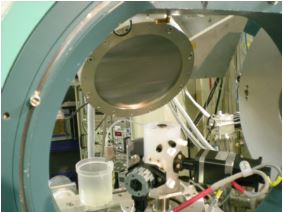1994-1997: The Building Phase

A grant of £1,962,350 was awarded to construct the facility in the period October 1994 – September 1997 and a Project Management Committee (PMC) was appointed by the Engineering and Physical Sciences Research Council (EPSRC) to monitor progress and also provide advice. This group, whose composition has, of course, changed over the years, continues to provide invaluable advice. Bruce Forsyth, a member of that original PMC, was the originator of the acronym ‘XMaS’ standing for X-ray Magnetic Scattering, by which BM28 is generally known. The project team, consisting of David Paul, David Laundy, Dave Bowyer, Paul Thompson and Simon Brown, moved out from the UK onto the ESRF site during the spring and summer of 1996, where they were joined by Malcolm Cooper. The construction project was concluded on time and within budget and the beamline was fully commissioned and ready for the first external user in April 1998, since when it has been continuously scheduled. XMaS has endeavoured to maximize user beamtime by using all synchrotron filling modes, for example a significant number of experiments being carried out with 16-bunch and even 4-bunch modes.
Key Instrumentation Delivered:
• Flexible beamline with energy range 3-15 keV.
• Flexible 6-circle non-magnetic multi-axis diffractometer with a sphere of confusion of just 30 µm.
• 10-300 K sample environments.
• Detectors optimised for magnetic scattering.



